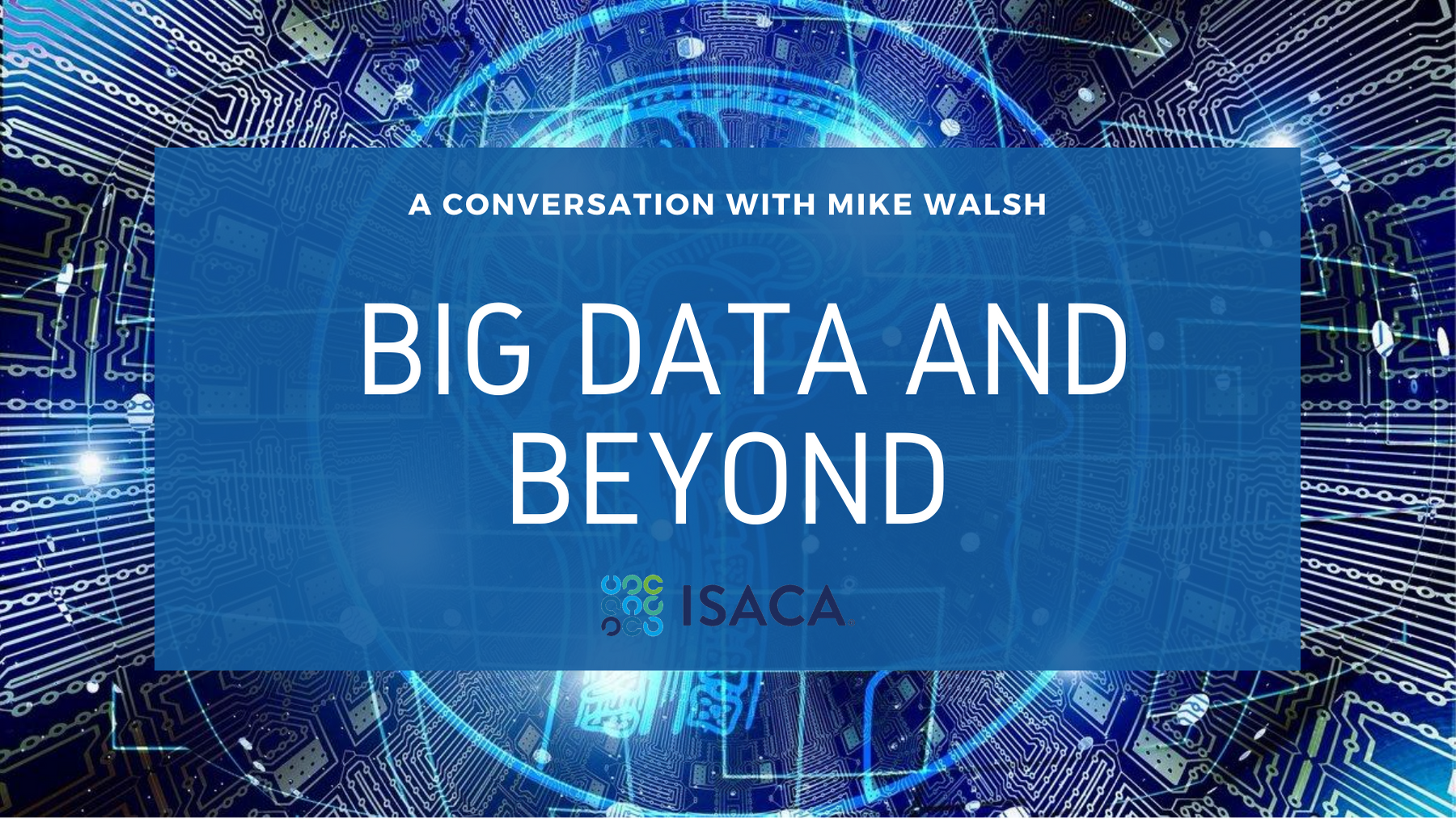
Editor’s Note: Mike Walsh, CEO of Tomorrow and futurist, innovation and technology speaker and authority on emerging markets and IoT, will bring his experience and perspective on Big Data to his closing keynote for ISACA’s 2018 EuroCACS Conference. The event will gather information systems audit, assurance, control, governance and security professionals, from 28-30 May 2018 in Edinburgh, Scotland.
What are some of the most promising applications of big data that you have observed in recent years?
Lately, the most interesting thing about data is not so much what we have been doing with it, but rather how our thinking about the strategic importance of data has changed. Instead of hiring an army of data scientists and building a monolithic bureaucracy to collect and analyze their data, the new focus of companies is on how to become AI-first. In other words, how do you leverage machine learning and algorithms in combination with data, to reimagine how you engage your customers and the way you do business?
What are some common missteps enterprises should seek to avoid when it comes to leveraging big data?
One of the missed opportunities for enterprises when it comes to data is allowing each operating unit to make its own disparate, non-aligned decisions with data and platforms, as opposed to supporting a company-wide vision to aggregate, process and analyze data into a single data lake. This is not merely a cost issue. With the rise of machine learning, gaining scope and scale in data, has become more important than ever.
How can business technology professionals – such as those that will be in attendance at EuroCACS – help their executive teams put data to good use?
The most important discussion that business technology professionals need to have with the other leaders in their organization is on how real-time data and algorithms should impact their approach to solving problems and making decisions. You can change your enterprise technology stack, but unless you also challenge the culture of leadership and decision making, then nothing really changes at all.
What are some emerging technologies that you anticipate will be most disruptive in 2018 and beyond?
Quantum computing is starting to look less like science fiction and more like a breakthrough technology with real -world applications. I recently spent some time in Tokyo, where transportation companies are already working on designing algorithms that leverage quantum platforms to solve the kind of tricky optimization problems that tomorrow’s traffic control and congestion systems will need to handle at scale.
What type of feedback have you received from readers of The Dictionary of Dangerous Ideas? What have been some of the major takeaways?
Readers of The Dictionary of Dangerous Ideas tell me that they love how the book helps them start interesting conversations and debates with their colleagues and clients. It is easy to see change in the world as merely the function of inevitable technology advancement, whereas in fact, many of the ideas and innovations— whether it be AI, automation or other algorithmic platforms —are really things that we should be debating and discussing in greater detail. The future may be now, but it is still for us to decide.

